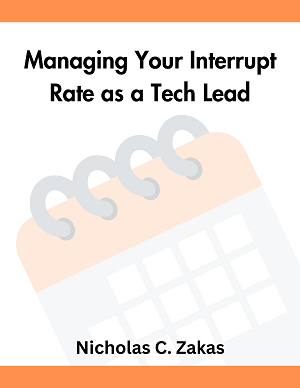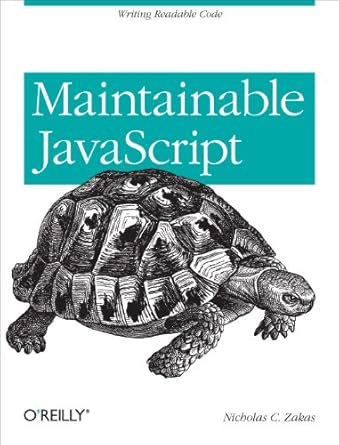Dear Chairman Wheeler,
I’m writing to you as a citizen who is deeply concerned about the direction the FCC may take with regards to ISPs. As both a consumer and a technology worker, I rely on the Internet not only as a source of entertainment and information, but also a way to communicate with colleagues and customers. As someone who is fighting Lyme disease, I spend most of my time at home, with the Internet as my primary means of communication and the only means by which I’m able to remain employed. In an average day, I log into my company’s virtual private network (VPN) to securely do my work over the Internet, and later in the day I may watch something on Netflix. Suffice to say, the Internet is an important part of my life.
I’d like to go on record by saying that I think ISPs should be able to make money. They put a lot of money into building out an important piece of infrastructure that benefits all citizens and they should be able to recoup their investments and make money in the process. I also believe that ISPs have a right, and maybe even a responsibility, to ensure that all traffic is given a fair chance to make it through their network. This necessarily means watching out for services that are using an inordinate amount of bandwidth that may prevent other data from making it through. I want ISPs to protect customers from this situation.
I’m aware that Netflix traffic is growing to be a significant portion of all Internet traffic. I realize how this can affect ISPs financially and also how it can negatively affect other types of Internet traffic. If I was unable to log into my bank or my work VPN because too many people were watching House of Cards, I’d be pretty upset.
At the same time, it frightens me to see the way that ISPs such as Comcast have dealt with this situation. Instead of being open about it, they started throttling the Netflix service, leaving customers confused and angry. When consumers pay for Internet service to their homes, there is an implicit guarantee of delivering all traffic the same way. We are paying for the gateway to the public Internet and then we expect the ISP to get out of the way so we can have the content we request. By throttling Netflix traffic, Comcast broke this implicit agreement, harming customers in the process.
The ISPs repeatedly talk about having a “fast lane” option, where services can pay extra money for the right to have faster speeds. In reality, what ISPs have done is not offer a new fast lane, but instead, they have added a new slow lane and shifted traffic to it. The charge, therefore, is to get back into the “normal” lane that they were on before. Consumers, in the meantime, are confused as to why they are paying for a 1.5mbps connection that is delivering only 256kbps for one or more services.
If this trend continues, it will further confuse the consumer market because each ISP will be free to transmit data from any service at any speed they so desire. Further, without strict guidelines, there is nothing preventing ISPs from arbitrarily shifting traffic into the slow lane whenever they choose, effectively turning the Internet into a toll bridge where if you don’t pay, your Internet business suffers.
You’ve probably heard the argument that ISPs will self-regulate, because if consumers get too frustrated, they will switch ISPs. In reality, few consumers have true choice when it comes to ISPs. In many places, the choices are between two companies with near-monopoly power: the cable and telephone companies. In Mountain View, California, where I live, my choices are Comcast and AT&T. Having a choice between two gigantic companies that couldn’t care less if I was a customer isn’t really a choice. What’s more, because these two compete on a national level as well as local, if one of them behaves in such a way that makes more money, the other is likely to follow. If one sees the other effectively extorting millions of dollars from a content provider, the other is likely to follow suit. After all, the number of customers that would have to switch ISPs to generate the same amount of money is extraordinarily high. And when both ISPs in a region are throttling traffic arbitrarily to extort millions of dollar from content providers, what other choice do I have?
What’s to prevent ISPs from throttling VPN traffic? Or traffic to delivery services that disabled Americans rely on? The one thing we all know for sure about capitalism is that monopolistic companies do not act with the best interests of the consumer in mind. These large ISPs are achingly close to being monopolies, and they cannot be trusted to self-regulate.
ISPs need government regulation to ensure that fair pricing models are applied to Internet traffic and that ISPs are not allowed to decide which traffic gets which speed without oversight. We need rules that will both protect consumers from the deceptive ISP practices of throttling certain traffic while also allowing ISPs to charge more when a particular service is taking up an inordinate amount of bandwidth.
One such solution would be to disallow bandwidth throttling or extra charges for any service that falls beneath a particular percentage of total ISP monthly bandwidth use. This would protect new businesses and popular web sites from extra charges, as well as encouraging existing services to more closely monitor their bandwidth usage. Once a particular service’s bandwidth usage crosses the percentage threshold, there should be a buffer zone between that threshold and the one at which the service must pay more to be switched to a “fast lane”. The intent of that buffer zone is so that ISPs have time to inform the service of their bandwidth usage before new charges kick in, and services have time to either prepare to pay more or to adjust their services to use less bandwidth.
This is just one solution of many that will be available to you. The key aspects of this solution, and of any truly fair solution are:
- ISP transparency about when new charges will apply
- Regulations establishing what traffic may not be throttled or charged more
- Protecting consumers for the near-monopolistic behavior of ISPs in many parts of the country
Mr. Chairman, I know my voice is just one of the many you have and will continue to hear during the next few months, but I hope you will consider the importance of regulating what has become an important piece of our country’s infrastructure. We cannot let ISPs continue to dictate terms based on their own preferences without negatively affecting consumers and businesses that rely on the Internet.
Sincerely,
Nicholas Zakas





